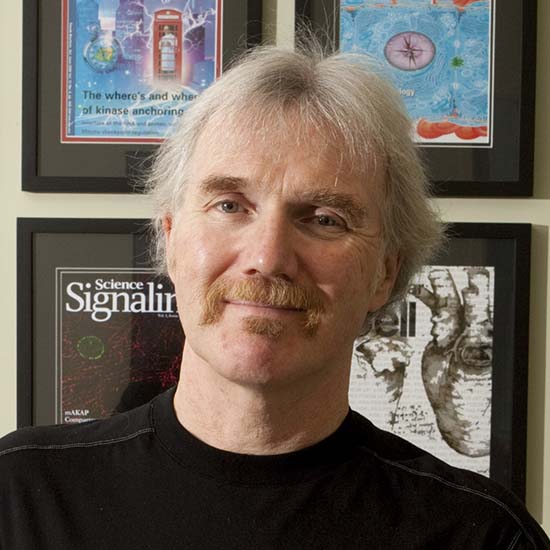John Scott is a biochemist who has made crucial contributions to our understanding of anchoring and scaffold proteins, which are key components in cell signalling. His research is enabling us to understand the mechanisms behind important cellular events — such as an aged cell committing itself to die — that are triggered by signalling pathways requiring the activation of receptors on the outside or inside of the cell.
His significant contributions include defining a family of A kinase-anchoring proteins (AKAPs) that target protein kinase A (or A kinase) signalling enzymes to subcellular sites, enabling the cell to communicate with its environment. John used an elegant combination of small-scale molecular approaches and larger-scale physiological approaches to determine how AKAPs work — causing a shift in the way that researchers think about cell signalling along the way.
Currently, John is a Howard Hughes Investigator and Professor of Cell Signalling and Cancer Biology at the University of Washington. His laboratory conducts fundamental research that aims to increase knowledge of cell signalling, and he has published over 235 papers in the field.
Professional position
- Investigator, Howard Hughes Medical Institute
- Endowed Professor, School of Medicine, University of Washington
- Senior Scientist, School of Medicine, University of Washington
- Edwin G Krebs-Speights Professor of Cell, Department of Pharmacology, Howard Hughes Medical Institute (Washington), University of Washington
Subject groups
-
Molecules of Life
Biochemistry and molecular biology, Cell biology (incl molecular cell biology)

